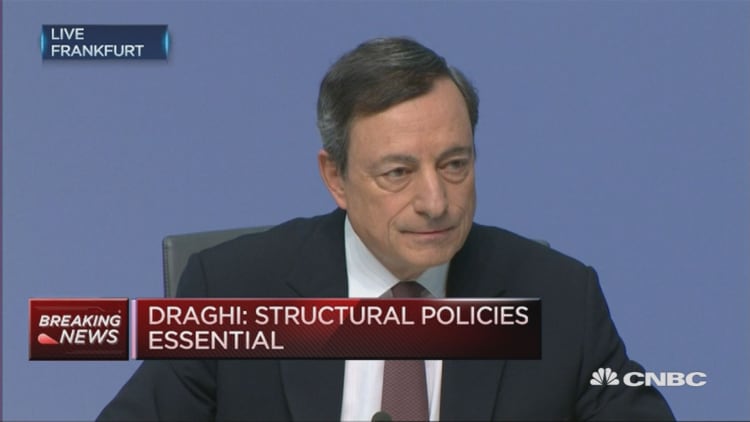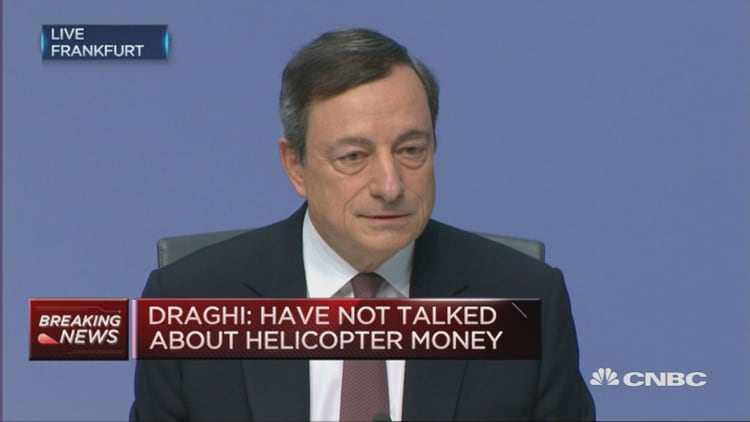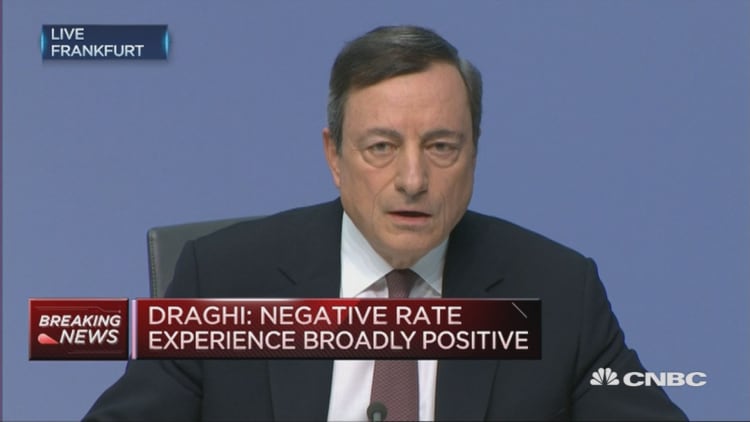





The latest events in Frankfurt might have failed to match last month's fireworks, but analysts are poring over the details of a new corporate bond-buying plan from the European Central Bank (ECB) that might just raise an eyebrow in the United States.
The central bank kept rates on hold Thursday, and the meeting lacked the surprise set of measures produced in March. However, it said it would start purchasing corporate bonds as part of its quantitative easing program in June. These purchases will take place in the primary and secondary markets but could include "debt instruments issued by corporations incorporated in the euro area whose ultimate parent is not based in the euro area."
"In theory, this means that it could also be QE for the U.S.," Carsten Brzeski, chief economist at ING-DiBa, told CNBC via email.
To be eligible, the instruments must be denominated in euros and have a credit rating of at least BBB- or equivalent, the ECB said. They must also have a remaining maturity of six months to 30 years at the time of purchase.
The purchases will be carried out on the ECB's behalf by the national banks of Belgium, Germany, Spain, France, Italy and Finland, according to a statement issued after Draghi's conference.
Frederik Ducrozet, a euro zone economist with private Swiss-bank Pictet, told CNBC that 10-15 percent of euro zone indexes were U.S. parent issuers. Several of these were financial institutions — which won't be part of the program, according to the ECB — but that left major corporations like Apple, Coca-Cola, Caterpillar and Microsoft, he said.
Using data from a Bank of America Merrill Lynch index, he projected that the U.S. had the largest share of noneuro-based investment grade corporate issuers outside of the banking sector. Its 15 percent share was more than the U.K.,which came second with a 9 percent slice.
Despite the prospect of the ECB flooding money to these U.S. corporations, many economists were lukewarm on the idea of cash making its way to the States. Brzeski said that the definition of parent is "pretty remote and the money would stay with the euro zone company or branch."
Marc Ostwald, a strategist at ADM Investor Services, said the uptake could be "very limited" but should encourage foreign companies to issue more for the ECB to buy.
"(It) smacks of desperation, 'please sell more euro debt that we can buy," Ostwald told CNBC via email.
Meanwhile, some economists still believe the use of negative rates is having a far greater effect on asset distortion than any bond-buying program could have. The policy has been widely criticized because it essentially charges banks that park cash at the Frankfurt-based institution, potentially denting revenues at euro zone lenders.
"With negative interest rates, Draghi is already inflating bubbles in other regions as these negative rates push investors out of the euro zone into other currency regions," Brzeski told CNBC.
—CNBC's Katy Barnato contributed to this report.





